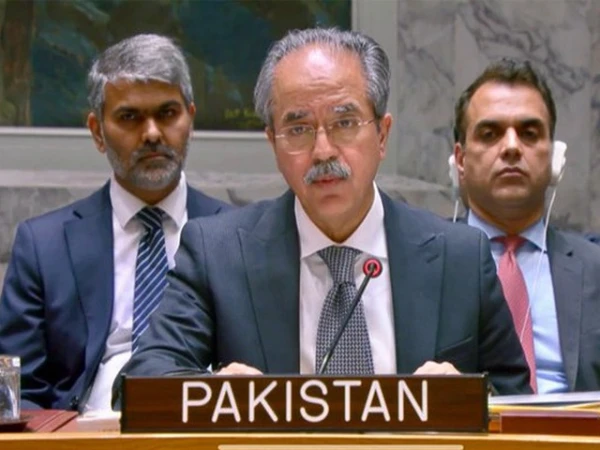United Nations: Pakistan reiterated at a UN committee that a just and peaceful global order depends on the consistent and universal application of international law, but warned that the rule of law is being undermined by exceptions and selective application of legal principles, whether in Jammu and Kashmir or Palestine.
Pakistan’s Permanent Representative to the United Nations, Asim Iftikhar Ahmed, while addressing the discussion on agenda item 84 “Rule of Law at the National and International Levels” of the Sixth Committee of the United Nations, stressed that the rule of law is “the foundation of human civilization and an enabler for socio-economic development and prosperity.”
He said that it is not just a legal concept but an essential moral and institutional pillar for the promotion of global peace and sustainable development.
In the context of growing geopolitical rivalries and deviation from international law, he warned that the rule of law is being undermined through power politics and unilateral actions.
He said that such deliberate actions are undermining the legal framework that was once considered indisputable and pose serious threats to the global order.
Asim Iftikhar said that we are witnessing territorial expansionism and the erosion of principles that were once considered sacred.
The Pakistani ambassador cited the examples of prolonged occupation and oppression in Jammu and Kashmir and Palestine where law and order have been violated. The blatant violation of the rule of law is the most prominent and said that the beginning of the end of impunity and the end of decades of occupation must be truly based on the observance of international law, as peace without accountability remains an illusion.
Condemning India’s aggression of May 2025, Ambassador Asim Iftikhar termed it as a “grave violation of international law and an attack on Pakistan’s sovereignty”, in which 54 innocent civilians were martyred.
He stressed that there is an urgent need for stricter implementation of international law, adding that Pakistan’s defensive action was entirely proportionate, legal and in accordance with Article 51 of the UN Charter, which despite the provocation, is a manifestation of Pakistan’s unwavering commitment to legal principles.
The Pakistani ambassador said that peace and development are directly related to the rule of law, in this context he referred to Resolution 2788, unanimously adopted by Pakistan during its presidency of the Security Council this year, which promotes the principle of peaceful resolution of disputes.
He stressed that Security Council resolutions are themselves part of international law and have binding effect on member states, therefore, their credibility should be ensured in all matters through their effective implementation.
On the occasion of the 80th anniversary of the United Nations, he stressed that international law should be made more democratic so that the emerging principles are fair and equitable, and not exceptional, restrictive or discriminatory.
He reiterated that Pakistan considers the fundamental principles of the United Nations Charter, namely the equality of sovereign states, the right to self-determination, the non-use of force and non-interference, as the moral and legal basis for its diplomacy.
Asim Iftikhar said that Pakistan is committed to promoting a global system based on the rule of law and stressed that strengthening the rule of law is indispensable to move the world out of anarchy, conflict and chaos and towards cooperation, peace, development and stability.
